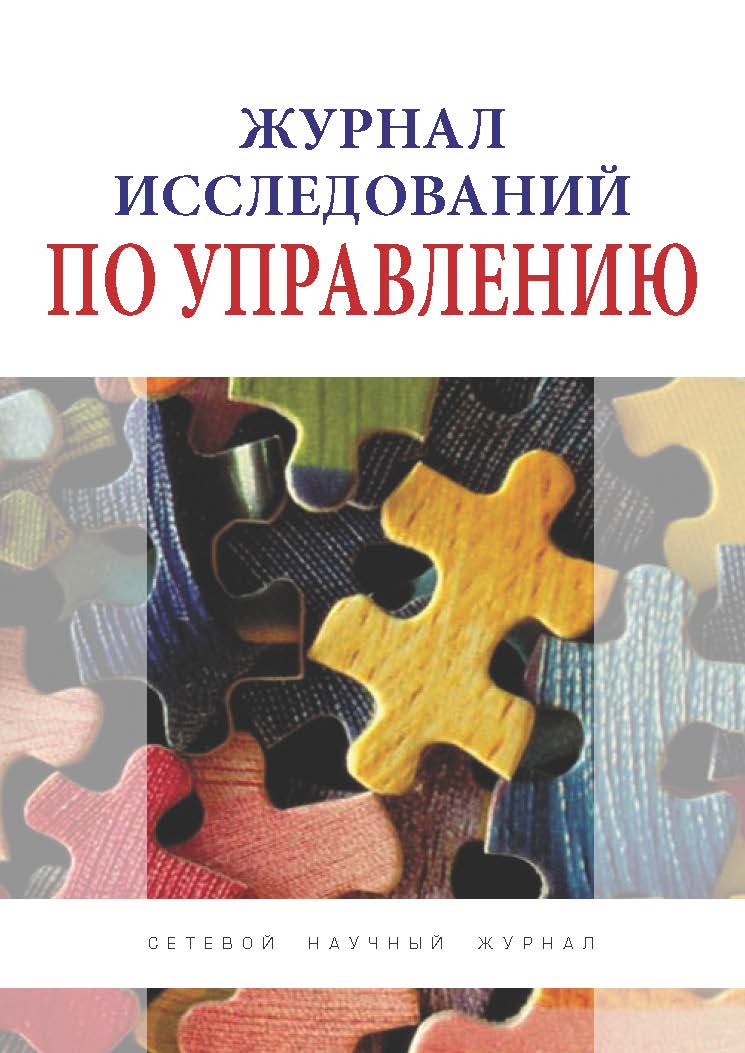Perm, Russian Federation
Perm, Perm, Russian Federation
UDC 338
The work investigates the role of proactive behavior of employees to intensify organizational learning, which is a key driver of the organizational effectiveness of a modern company. The authors propose to consider proactive behavior through three components: individual self-development, proactive behavior and commitment to the organization. In the context of three components, behavioral attitudes and personal factors that stimulate and hinder proactive behavior of employees are determined, and the features of behavioral patterns in the Russian business environment are identified. At the same time, the organizational culture, oriented toward the creation of new knowledge and the dissemination of existing knowledge, acts as a predictor of proactive behavior of personnel, determining ideas and values regarding company knowledge. Using empirical data from 110 Russian companies, using the partial least squares method, the paper proves the presence of a mediating effect of proactive behavior of personnel on the influence of knowledge culture on the company's organizational learning.
proactive behavior, knowledge culture, organizational Learning, Russian companies
1. Abramova O.A., Tatarko A.N. Innovacionnaya i byurokraticheskaya organizacionnye kul'tury kak faktory proaktivnosti chlenov organizacii // Organizacionnaya psihologiya. 2019. T. 9, № 4. S. 98-124.
2. Aleksandrova T.V., Popov V.L. Razvitie korporativnyh znaniy organizacii na osnove tehnologiy obucheniya deystviem // Upravlencheskie nauki = Management Sciences in Russia. 2020. T. 10, № 1. S. 68-80. DOI:https://doi.org/10.26794/2404-022X2020-10-1-68-80.
3. Il'ina O.N., Lepehin N.N., Manichev S.A. Proaktivnoe rabochee povedenie: koncepcii i napravleniya issledovaniy // Organizacionnaya psihologiya. 2022. T. 12, № 1. S. 92-127.
4. Mehanizmy i formy samoorganizacii i samorazvitiya: monografiya / A.V. Molodchik, S.V. Komarov, I.A. Esaulova, D. Dimitrakiev; pod nauch. red. A.V. Molodchika. Perm': Izd-vo Perm. nac. issled. politehn. un-ta, 2019.
5. Ot samoorganizacii k samorazvitiyu: smena paradigmy menedzhmenta: monografiya / Pod nauch. red. S.V. Komarova; predisl. akad. A.I. Tatarkina. Ekaterinburg: In-t ekonomiki UrO RAN, 2013.
6. Molodchik M.A., Esaulova I.A. Proaktivnoe povedenie personala - klyuchevoy faktor konkurentosposobnosti organizacii v ekonomike znaniy: monografiya. Perm': Izd-vo Perm. nac. issled. politehn. un-ta, 2023.
7. Esaulova I.A., Semenova I.V. Upravlenie iniciativoy personala kak oblast' deyatel'nosti sovremennoy organizacii // Vestnik universiteta. 2017, № 9. S. 26-33.
8. Andreeva T., Festing M., Minbaeva D., Muratbekova-Touron M. (2014). The Janus faces of IHRM in Russian MNEs - and institutional perspective. Human Resource Management. Vol. 53, No 6. P. 967-868.
9. Argyris C., Schön D.A. (1978). Organizational learning: A theory of action perspective. Addison-Wesley Reading, MA.
10. Crant J.M. (2000). Proactive behavior in Organizaiton. Journal of Management. Vol. 26, No 3. P. 435-462.
11. Frese M., Fay D., Hilburger T., Leng, K., Tag A. (1997). The concept of personal initiative: Operationalization, reliability and validity in two German samples. Journal of Occupational and Organizational Psychology. Vol. 70, No 2. P. 139-161.
12. Garvin D.A., Edmondson A.C., Gino F. (2008). Is yours a learning organization? Harvard Business Review. Vol. 86, No 3. P. 109-116.
13. Koveshnikov A., Ehrnrooth M., Wechtler H. (2020). The three graces of leadership: Untangling the relative importance and the mediating mechanisms of three leadership styles in Russia. Management and Organization Review. Vol. 16, No 4. P. 791-824.
14. Mahmoudsalehi M., Roya Moradkhannejad Sahari K. (2012). How knowledge management is affected by organizational structure. The Learning Organization. Vol. 19, No 6. P. 518-528.
15. Marsick V.J., Watkins K.E. (2003). Demonstrating the value of an organization’s learning culture: the dimensions of the learning organization questionnaire. Advances in Developing Human Resources. Vol. 5, No 2. P. 132-151.
16. Meyer J.P., Allen N.J. (1991). Three-component conceptualization of organizational commitment. Human resource management review. Vol. 1. P. 61-89.
17. Parker S. K, Williams H.M., Turner N. (2006). Modeling the antecedents of proactive behavior at work. Journal of Applied Psychology. Vol. 91. P. 636-652.
18. Pereira V., Mohiya M. (2021). Share or hide? Investigating positive and negative employee intentions and organizational support in the context of knowledge sharing and hiding. Journal of Business Research. Vol. 129, No 4. P. 368-381. https://doi.org/10.1016/j.jbusres.2021.03.011.
19. Ringle C M., Wende S., Becker J.-M. (2015). SmartPLS 3. Boenningstedt: SmartPLS GmbH. URL: http://www.smartpls.com
20. Shakina E. A., Barajas A., Molodchik M. (2017). Bridging the gap in competitiveness of Russian companies with intangible bricks. Measuring Business Excellence. Vol. 21, No 1. P. 86-100.
21. Shein E. (2004). Organizational Culture and Leadership. 3rd ed. San Francisco: The Jossey-Bass.
22. Zang X., Jiang J.Y. (2015). With whom shall I share my knowledge? A recipient perspective of knowledge sharing. Journal of Knowledge Management. Vol. 19, No 2. P. 277-296.











